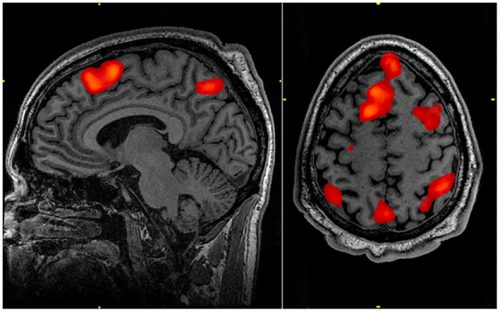Psychotic disorders such as schizophrenia are severe mental disorders that affect the thoughts and emotions of an individual, making them feel detached from reality in a condition called psychosis. Although these disorders can be debilitating, starting treatment early can potentially improve the long-term wellbeing of these patients.
Unfortunately, the causes of psychosis are unclear, which has made it difficult for researchers to identify biomarkers that indicate whether or not a patient will later develop psychosis. However, Dr. Hengyi Cao, a Post-Doctoral Research Associate at Yale University, has identified an early-stage neural biomarker that can potentially predict the onset of psychosis. In his study, potentially schizophrenic subjects first underwent a functional magnetic resonance imaging (fMRI) scan, which measures brain activity via blood flow, and then continued to follow-up with the clinicians organizing the study for a few years.
Cao analyzed those scans and found that the initial fMRI scans of subjects who later developed psychotic disorders showed increased amounts of brain activity between the thalamus, cerebellum, and cerebral cortex, regions collectively responsible for error processing. Among those who became psychotic, the degree of hyperconnectivity between those brain regions was correlated with how fast the subject developed psychosis.
Cao hopes that this “cerebello-thalamo-cortical hyperconnectivity” can act as a biomarker for psychosis, a telltale sign of schizophrenia, leading to earlier treatment and hopefully a better quality of life for schizophrenic individuals. He also believes that these findings may shine new light on the underlying mechanisms of the disorder.
“In individuals with schizophrenia, the signals sent by the cerebral cortex to the thalamus and cerebellum might contain more errors, which forces those regions to be hyperconnected to make up for those mistakes,” Cao explains.
For his future research, Cao wants to uncover the neural basis behind this hyperconnectivity phenomenon associated with schizophrenia and psychosis.

